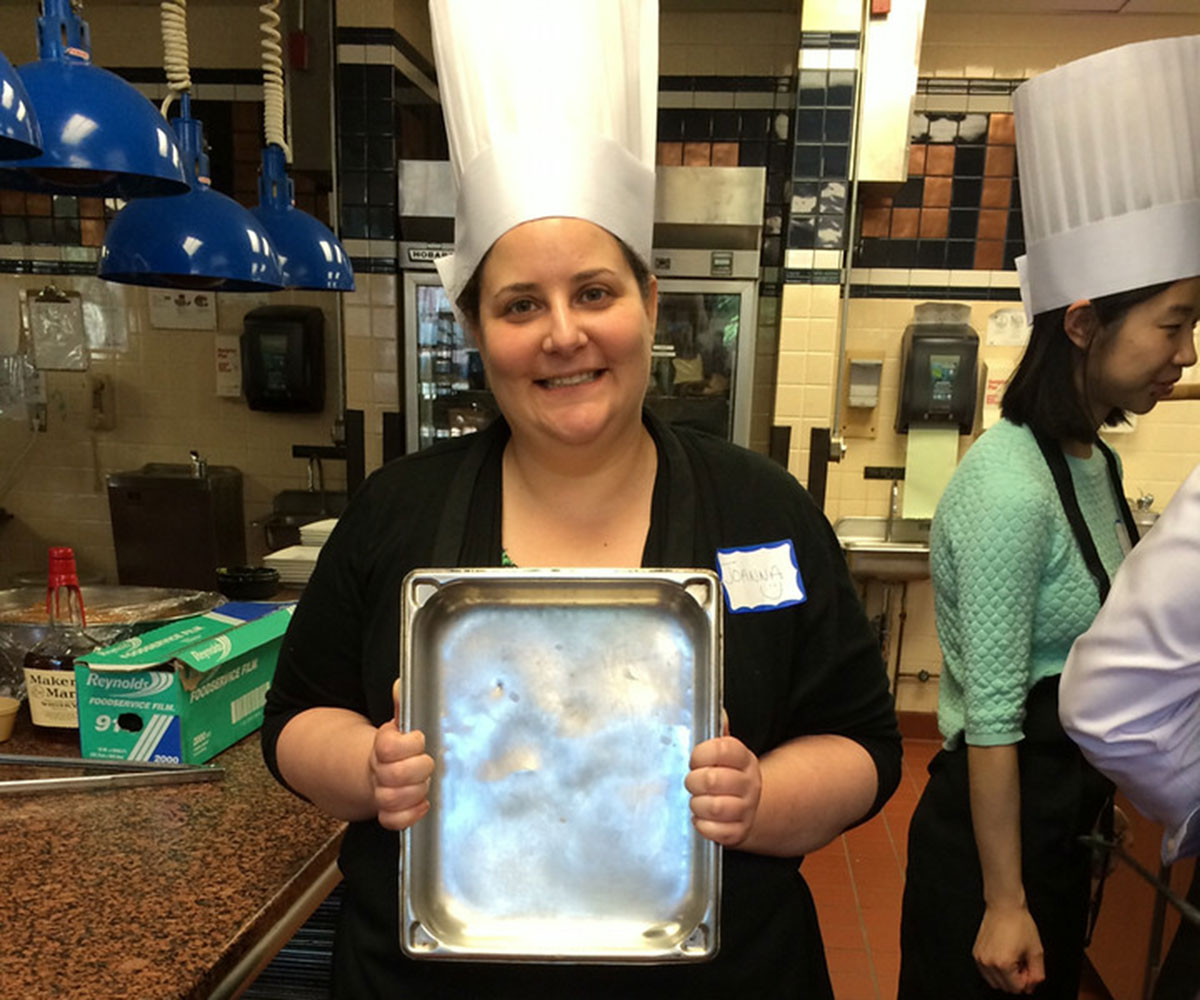A Watertown Resident Opens Up About Her Binge Eating Disorder

learning to eat for enjoyment has been an important part of rothman’s recovery. photo provided to bostonmagazine.com.
Growing up, Joanna Rothman, 40, didn’t struggle with managing her weight. It wasn’t until she enrolled in grad school at The George Washington University to pursue a degree in art history that things began to change.
“I was going to school and working full-time, and my anxiety was skyrocketing,” she says. “The thing that got me through the day was knowing that a pint of Ben & Jerry’s Ice Cream was waiting for me. That was really what I focused on.”
After stints with Weight Watchers in the following years and periods of yo-yo dieting in which she’d lose and regain the weight, Rothman—a Watertown resident who now works at a local nonprofit—says that she packed on 100 pounds in a year. That’s when she decided to get help. She spoke with her doctor, who recommended that she contact the Cambridge Eating Disorder Center.
“I went to an intake there and it was like the lightbulb went off,” Rothman says.”I was like, ‘Oh that’s what’s wrong with me. It all makes sense to me now.’ It was an ‘aha’ moment.”
Rothman was diagnosed with binge eating disorder, which affects one to five percent of American adults, according to the National Eating Disorder Association (NEDA). The disorder is characterized, according to the organization’s website, by “frequent episodes of consuming very large amounts of food without behaviors to prevent weight gain, feeling[s] of being out of control during the binge eating episodes, [and] feelings of strong shame or guilt regarding the binge eating.”
As an outpatient at the Cambridge Eating Disorder Center, Rothman attended weekly sessions where she learned about nutrition, reducing problematic eating behaviors, and honing new coping skills. She completed the program in 2010 and, with the help of a nutritionist and therapist, has been in recovery ever since. Though Rothman says she does not binge-eat anymore, she admits that she still struggles with portion control. One way that she says she manages this is by following what she calls her “10-minute rule.”
“If I ate a sweet and was reaching for a second one, I would stop myself and say, “Wait 10 minutes. If you still want it, you can have it,'” Rothman explains. “Nine times out of ten I could forget about it, but if I was obsessing over that sweet I would just eat it. I still do that.”
In the five years since her treatment at the Cambridge Eating Disorder Center, Rothman has used strategies like this one to make significant progress toward her goals. She says that instead of eating to “numb [her] pain,” she’s learning how to eat for enjoyment and accept her “bad days” as part of the recovery process. For her, one sign of success has been her new-found ability to eat in front of family and friends—she says that she used to sneak food in the middle of the night so people couldn’t see her eat—and maintain a full refrigerator at home without the desire to binge. In sharing these successes publicly, Rothman says that she hopes to help others who may be struggling with similar issues.
“The world does not treat people who are plus-size very well. As an adult, I’ve had a whole set of challenges in terms of how people react to me. [For people with eating disorders,] there’s a lot of shame and a lot of secrets,” she says, adding that she is grateful for the support she’s received from loved ones and professionals. “I want people to know that you can get better. If I can share my story and it’s relatable to someone, I’ll feel like I’m paying it forward.”
Cambridge Eating Disorder Center, 3 Bow St., Cambridge, 617-547-2255, eatingdisordercenter.org.
Multi-Service Eating Disorders Association, 288 Walnut St, Ste. 130, Newton. 617-558-1881, medainc.org.
The Renfrew Center, 870R Commonwealth Ave., Boston, 800-736-3739, renfrewcenter.com.


